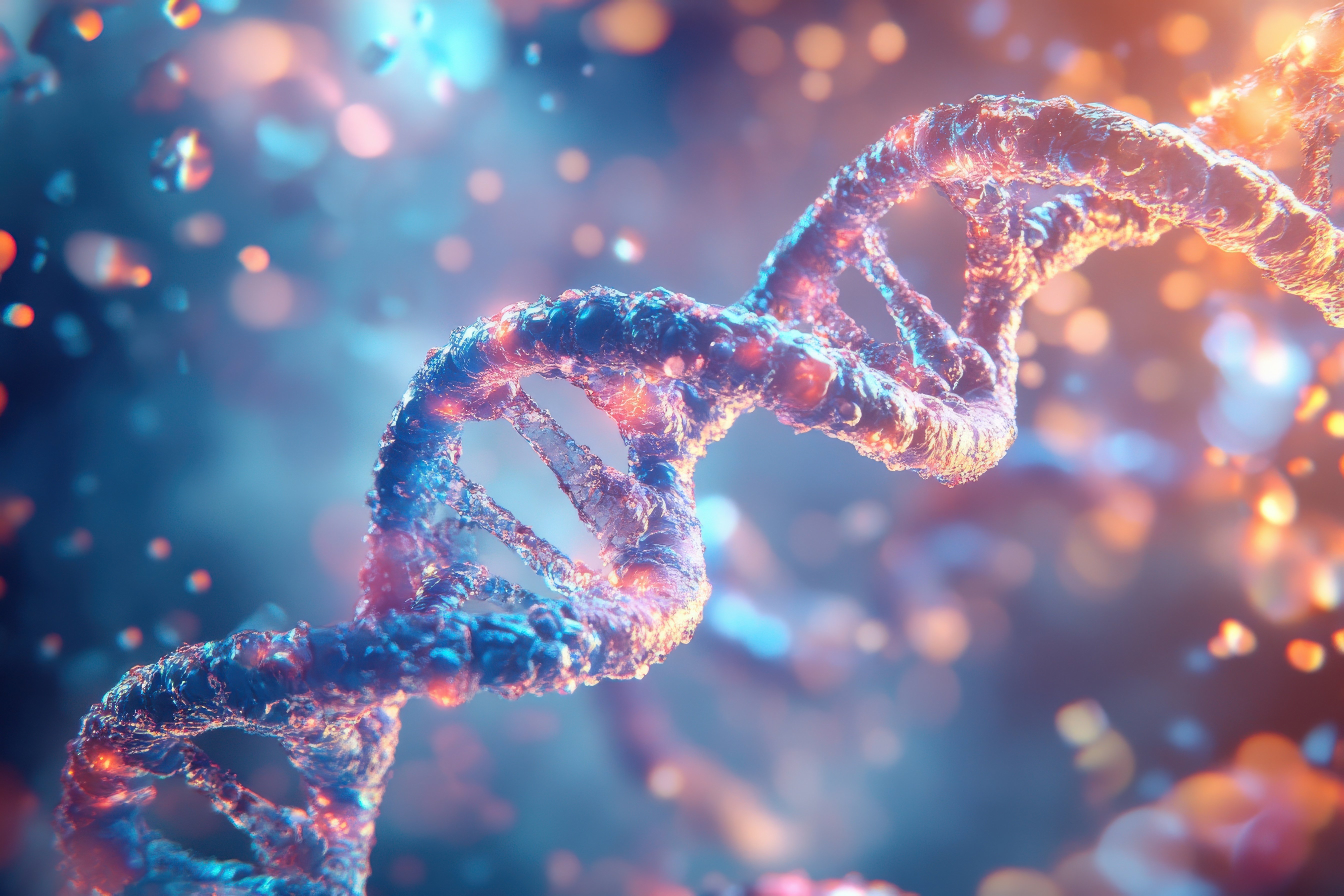
Biotech veteran Dr Rob Arathoon is pioneering a new way to counteract multi-drug resistance in cancer using bispecific antibodies. He explains his work.
Forward: features are independent pieces written for Mewburn Ellis discussing and celebrating the best of innovation and exploration from the scientific and entrepreneurial worlds.
‘Some test results indicate that up to 80% of cancer patients who have been through various therapies will acquire multi-drug resistance, and in some cases it’s even higher than that,’ says Dr Rob Arathoon. ‘In some adrenal cell cancers, it’s 100%.’
Arathoon knows what he’s talking about. As president and CEO of Californian company Kenjockety Biotechnology, he spent the past eight years tackling the scourge of multi-drug resistance (MDR) in cancer.
In more than four decades in the biotech business, the Briton has also worked on numerous products – including antibody drug conjugates (ADCs), ‘biological missiles’ that deliver chemotherapy directly to cancers – and led teams of hundreds on the development of drugs that went on to become household names.

Dr Rob Arathoon, President and CEO of Kenjockety Biotechnology Inc
Tackling MDR
If a patient becomes resistant to one cancer drug, several others often stop working too, says Arathoon. The prognosis for such patients is bleak and MDR is responsible for the majority of deaths in those receiving chemotherapy.
At Kenjockety Biotechnology, Arathoon focused on one of the most common causes of MDR in cancer, the overexpression of molecular efflux pumps.
These ‘beautiful little proteins’ play an essential role in healthy cells, where they span membranes and remove waste and toxins. Overexpression of these pumps is one of the hallmarks of cancer – and it enables them to expel therapeutic drugs.
There have been numerous attempts to develop small molecules that block molecular efflux pumps to prevent cancer treatments from being ejected from tumour cells.
But, while some early results have been promising, none of these drugs have been successful in clinical trials. This, says Arathoon, is largely because the small inhibitory molecules are also taken up by healthy cells. Once there they can interfere with cellular metabolism and other vital processes.
Crucially, blocking molecular efflux pumps in healthy tissues can lead to severe side-effects, particularly in the likes of the liver and kidney, which express the pumps in high numbers to allow them to remove toxins from the body.
‘The pump efflux mechanisms were discovered in the 1970s and the allure of finding a means to antagonise them was enormous,’ says Arathoon. ‘A huge amount of work was done by big pharma companies, and they’ve developed some fantastic drug candidates, but the trouble is that they get inside all the cells in the body.’
Sparing healthy cells from damage
Kenjockety Biotechnology took a different approach by using bispecific antibodies. These are antibodies designed to bind to two different targets at the same time to inhibit the pumps.
Bispecific antibodies aren’t new – the first was approved by the FDA more than a decade ago to treat cancer – but Kenjockety Biotechnology was the first to use the modality in MDR.
Much larger than small molecules, these don’t permeate cells – binding instead to their outsides – and so don’t interfere with internal processes.
By choosing antibodies that target both an efflux pump and another target that’s co-expressed at high levels on cancer cells, but not on healthy cells, it’s possible to home in specifically on the cancer.
To further increase the specificity, Kenjockety Biotechnology designed the antibodies to bind weakly if just one of the targets is on a cell. If both targets are present, however, they ‘clamp’ firmly onto the cell.
Kenjockety Biotechnology has had some impressive results with several bispecific antibodies – and particularly ones that inhibit the P-glycoprotein (P-gp) efflux pump. This pump can expel numerous different cancer drugs and is one of the main causes of MDR.
One arm of the antibody binds to and blocks the pump, while the other arm assists by attaching to CD47, a protein that is overexpressed by many cancers.
In proof-of-concept studies, Kenjockety Biotechnology tested these bispecific antibodies on rodents with xenografts of three different human cancers: uterine cancer, acute lymphoblastic leukaemia and ovarian adenocarcinoma. All were MDR.
With all three cancers, the tumours grew when the animals were given a placebo antibody, either alone or with paclitaxel, a common chemotherapy drug.
However, the tumours grew much more slowly when given the bispecific antibody alone and barely grew at all, or even shrank, when paclitaxel was added to the mix.
In other words, the antibody reversed the drug resistance.
‘It stifles the efflux, so the cells are susceptible to chemotherapy again,’ says Arathoon.
As to why the antibody was able to kill the cancer when administered alone (albeit not as potently as when given with paclitaxel), a recent paper in the journal mAbs lays out several theories.
One is that blocking the efflux pump could have led to such a build-up of toxins within the cancer cells that they struggled to grow.
Blocking CD47 may also be at play. This protein is an immune checkpoint: it produces a ‘don’t eat me signal’ that inhibits immunological attack. Masking the CD47 signal allows the immune system to fight the disease.
Toxicity studies on macaque monkeys (chosen because their P-gp and CD47 proteins are almost identical to those in humans) revealed no adverse effects, although further in-depth safety studies would still be needed ahead of clinical trials.
More options for treating patients
So what might these results mean for cancer patients? Drugs, including chemotherapy and ADCs, that had been put to one side because of resistance could potentially be used in treatment again.
Perhaps most excitingly, the research could allow patients to get the full benefit of immune checkpoint inhibitors. These immunotherapies tend to work best when given in combination with chemotherapy, but many patients are resistant to chemo.
‘If the checkpoint inhibitor plus chemo was combined with our bispecific antibody, we think that would restore the sensitivity of the cancer cells to the chemotherapy and make a huge difference,’ says Arathoon. ‘There’s an enormous opportunity here that could be tested in clinical studies.’
The finding that the bispecific antibody can inhibit cancer growth when given alone could also be exploited in the clinic.
It may, for example, mean that patients can be given lower doses of chemotherapy, which should be easier for them to tolerate. Another possibility is that treatment with the bispecific antibody could continue during breaks in chemotherapy. ‘We think there’s great potential there,’ says Arathoon.
What are the other causes of multi-drug resistance? Are inroads being made there, too?
One possible mechanism involves changes to cancer cells’ metabolism, allowing them to degrade or modify small molecules, so that they’re no longer active.
There’s quite a lot of interest in tackling this, says Arathoon, but none of the efforts are strictly tumour-specific. ‘So they will all have effects on normal tissue as well, and that makes it a real challenge. It’s a fundamental problem with these approaches and one that we’ve circumvented.’
Another mechanism of MDR that has yet to be overcome involves the cancer cells evolving a ‘thick skin’ – a stiffening of their outer membrane that prevents small molecules from penetrating them. Little progress is being made in countering this, he says.
Making biotech history
Arathoon counts his 22 years at Genentech as the highlight of his career to date. During this time, he pioneered the use of mammalian cell culture systems in drug development – an innovation that led to the approval of a dozen products, including the blockbusters Herceptin, Avastin and Rituxan among others.
‘Most scientists would have been delighted to have worked on one or two such successes,’ he says. ‘Looking back, we really made biotech history at Genentech.’
Kenjockety Biotechnology recently ceased operations, but Arathoon has applied for a clutch of patents. Two have been granted and another four are in progress.
He says that seeing his work be turned into an effective treatment against MDR may equal all his achievements at Genentech.
‘I would be delighted if someone were to use this technology and science to counteract multi-drug resistance in a tumour-specific way,’ he adds. ‘The needs of patients with multi-drug resistant cancers cannot be overstated.’
Tanis Keirstead, Partner and Patent Attorney at Mewburn Ellis, comments:
“In our battle against cancer, overcoming multi-drug resistance isn’t just a scientific challenge—it’s a lifeline for countless patients. The innovative approach developed by Rob Arathoon and his team focussing on bispecific antibodies to block efflux pumps expressed on cancer cells is a hugely exciting technology, ripe for further development and investment.”
Written by Fiona MacRae
Tanis is a Partner and Patent Attorney at Mewburn Ellis. She is a member of our life sciences patent team. Tanis has over 10 years’ experience drafting and prosecuting patent applications in the pharmaceutical, biotechnology and food & beverage sectors. She works with a wide range of clients on invention capture and filing strategy, as well as global portfolio management. Her clients include SMEs, Universities (in the UK and elsewhere), domestic and overseas multi-national companies, as well as start-ups. Tanis visits Japan several times a year and handles large European portfolios for a number of Japanese companies.
Email: tanis.keirstead@mewburn.com
Sign up to our newsletter: Forward - news, insights and features
Our people
Our IP specialists work at all stage of the IP life cycle and provide strategic advice about patent, trade mark and registered designs, as well as any IP-related disputes and legal and commercial requirements.
Our peopleContact Us
We have an easily-accessible office in central London, as well as a number of regional offices throughout the UK and an office in Munich, Germany. We’d love to hear from you, so please get in touch.
Get in touch

